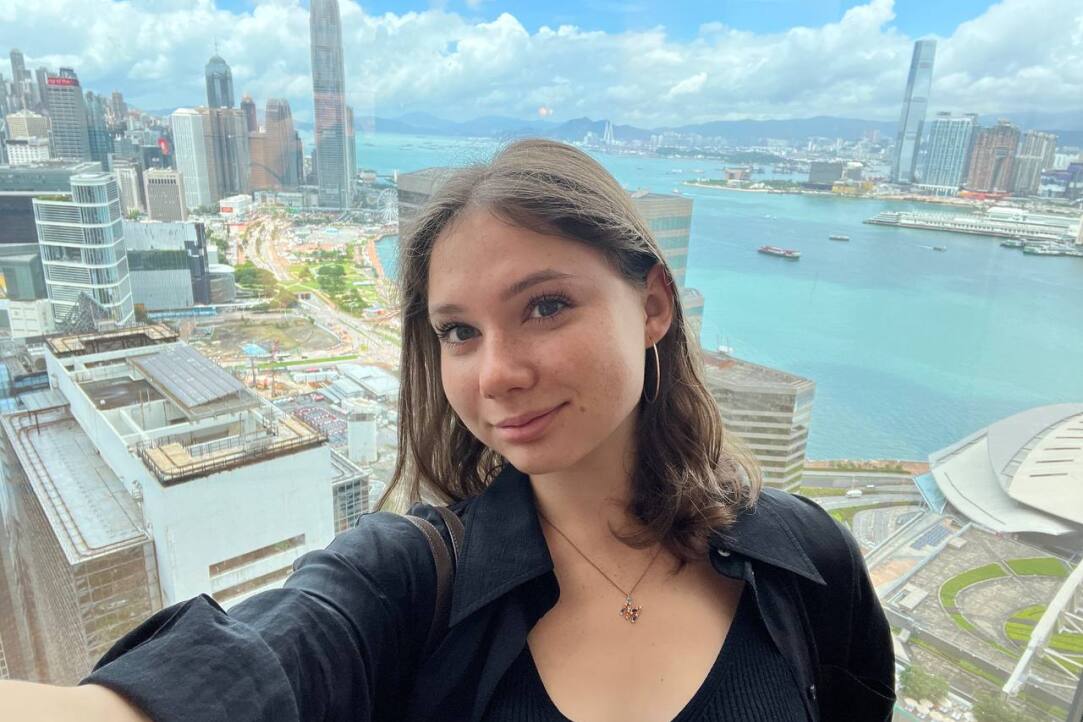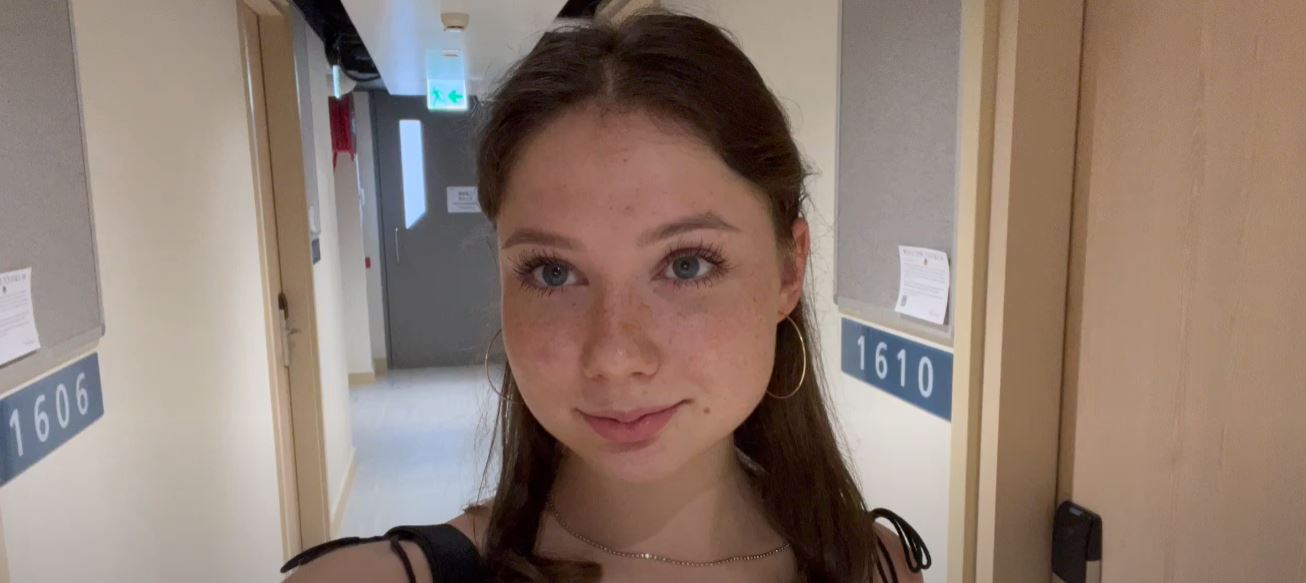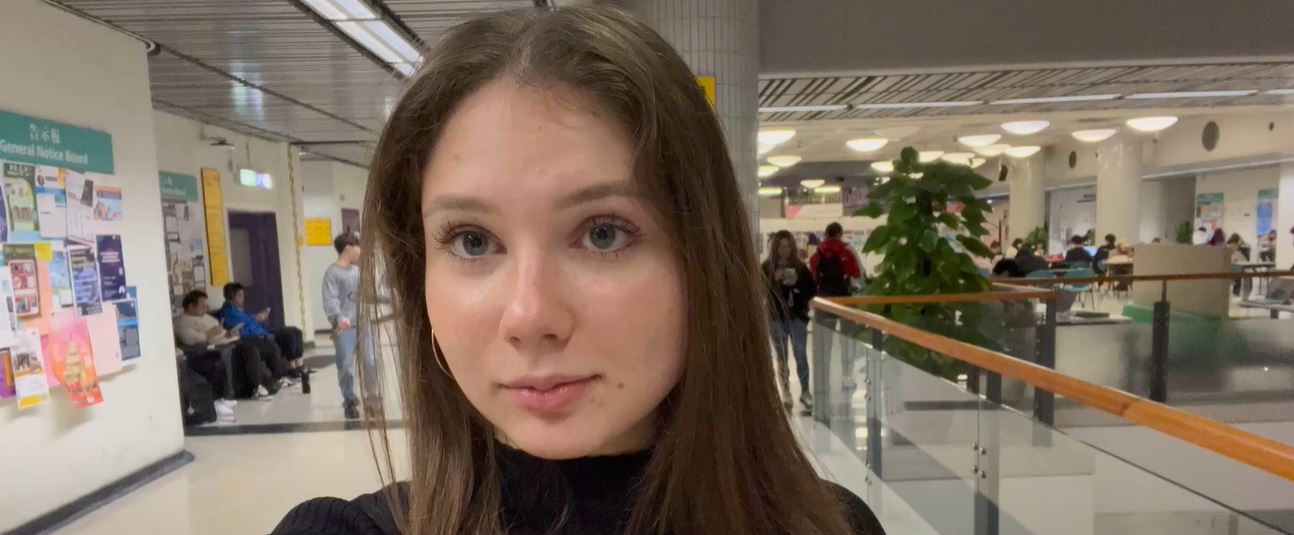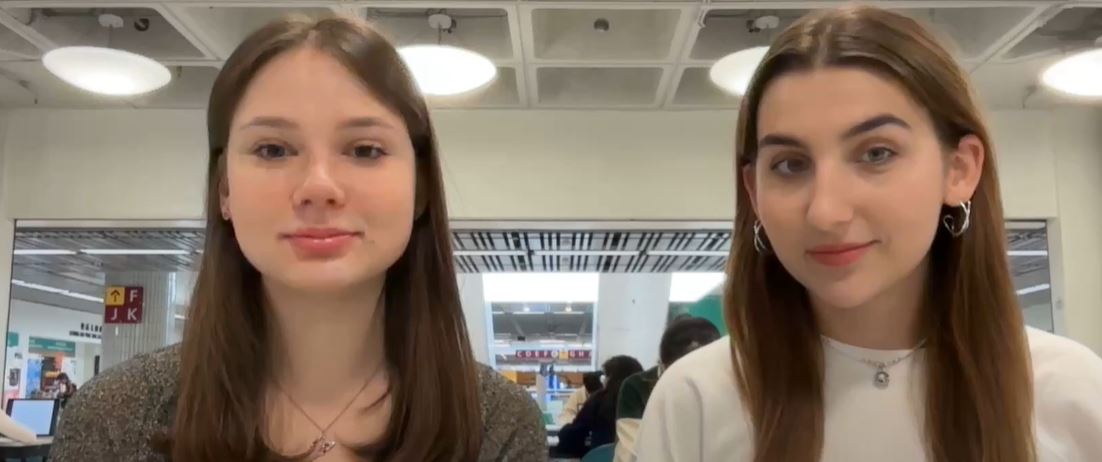From Hong Kong with Love: Academic Mobility Experience of an GSB Student
Viktoria Makovskaya, a student of the "Marketing and Market Analytics" program, shared her experience of studying in Hong Kong through an academic mobility program. She spent her fall semester at the City University of Hong Kong, where she studied marketing, strategic management, and Mandarin. Vika spoke about the selection process, the unique aspects of studying abroad, and how she balanced her studies with travel. Read her tips, impressions, and recommendations for those planning to go on exchange in Asia.

Hi everyone! My name is Vika, and I’m studying in the “Marketing and Market Analytics” program. During the fall semester of my third year, I participated in an academic mobility program in Hong Kong at the City University of Hong Kong, College of Business. Let me share my experience in a Q&A format!
1. How was the selection process for the exchange program?
Applications for the fall semester mobility program needed to be submitted in February. The main criteria for securing one of the limited spots were a high average and cumulative grade, English proficiency, and a strong motivation letter.
Here are my stats:
- At the time of application, my average grade was 8.17.
- In May 2023, at the end of my first year, I scored 7.5 out of 9 on the IELTS (C1 level).
- My motivation was clear: I’m learning Chinese (HSK2 = A2 level), taking the minor “The East in a Changing World,” attended a course on Chinese painting traditions, and participated in summer and winter schools in China and Japan.
Thanks to these efforts, I secured one of the two spots in Hong Kong, my first and only priority.
2. Was it hard to get a visa? How did you arrange housing?
Getting a visa was straightforward since CityU’s College of Business handled it. I just needed to mail the required documents (visa application form, passport photo, and payment receipt) to them via courier in early March.
As for housing, I stayed in a university dorm, which I applied for shortly after being selected for the program. CityU had just opened a brand-new student residence this year – a 24,500-square-meter complex for 2,200 residents.
3. How were the classes? Any differences from studying in Russia?
At CityU, I took five courses: Marketing, Marketing Research, Strategic Management, China Business Environment, and Mandarin for Non-Chinese Speakers. This was the perfect number since the maximum allowed was six, and the minimum was four.
I got lucky with my schedule: two classes on Tuesday, one on Thursday, and two on Friday. This gave me weekends and holidays to travel. Each class lasted three hours, with two 10-minute breaks after every 50 minutes.
I had studied Mandarin for a few months before arriving, so while we started from scratch, I was already familiar with some material. Nonetheless, the lessons were fun and interactive, with plenty of speaking exercises and creative teaching methods.
The course on the China Business Environment reminded me of my elective at HSE called “Oriental Studies.” Unfortunately, it didn’t fully meet my expectations – it was the professor’s first time teaching the course in English, so the material was somewhat superficial.
The other courses were more of a standard business education curriculum, covering well-known frameworks and concepts. However, the examples used were predominantly Asian, which made them fascinating and new to me.
Group projects were a significant part of the evaluation in all courses except Mandarin. For Marketing Research, my team was entirely exchange students, while the others were a mix of local and exchange students.
One thing that surprised me was how students at CityU design their own schedules, choosing courses from a list of recommendations and requirements. This means you might have seniors and first-years in the same class, creating varying levels of knowledge and complicating group work.
4. Did you experience any language barriers?
In May 2023, I scored 7.5 on the IELTS (C1 level). I didn’t practice English much after that, but my skills didn’t seem to decline significantly. I didn’t feel much of a language barrier – occasionally, I lacked the right word to express myself, but I communicated well with my European friends.
Interestingly, I arrived in Hong Kong a day before dorm check-in, so I arranged to stay at a hotel with other exchange students through a WhatsApp group. On August 25th, I met three girls from Sweden and a guy from Italy. Our group expanded over time, and I became especially close with Tara (Ireland), Lainey, and Maria (Sweden). We even traveled to the Philippines and Taiwan together! I also made a few local friends.
5. What did you do outside of classes? Was there extracurricular life at the university?
I had classes three days a week, leaving plenty of time for extracurricular activities. I explored Hong Kong’s sights, parks, and museums, and tried out authentic restaurants. Hiking was another favorite activity – Hong Kong’s nature is stunning.
The university offered a wide range of activities, from mini-parties for Halloween and the Mid-Autumn Festival to board game nights and movie screenings. Events were often held multiple times at different dorms and campus venues, so everyone could join. For example, we celebrated the Mid-Autumn Festival for an entire week and Halloween three times.
Our dorm even hosted a yoga master class by instructors who hold four Guinness World Records!
In November, the university organized a cultural month. I attended concerts featuring Italian jazz, Cantonese opera, and traditional Chinese music. They also arranged free excursions to Lantau Island and other nearby islands, as well as city tours.
6. Did you travel much?
Traveling is a favorite pastime for exchange students. We often shared itineraries and tracked flight deals in the evenings.
In the first two months, I visited the Philippines and Taiwan with friends, then made trips to Macau and Shenzhen. My advice is to plan trips early, as assignments and project deadlines pile up in November.
Explore Hong Kong in your free time, but make use of long weekends for trips further afield.
7. Did you receive a scholarship?
I received a scholarship as part of HSE’s inter-faculty exchange agreements. GSB students are eligible for scholarships of 220,000, 250,000, or 270,000 rubles, depending on the country and city. Hong Kong scholarships are 270,000 rubles, disbursed in three installments.
8. How was paying with bank cards?
Until late November, I primarily used a UnionPay card from Gazprombank, which worked 95% of the time. Some places didn’t accept cards at all, so I used cash or a local Octopus card, which can be topped up with cash and used for transport, shops, and restaurants.
However, due to new sanctions, my Gazprombank card stopped working in December. My UnionPay card from Rosselkhozbank could no longer make payments but still allowed cash withdrawals.
9. What did you think of local tech, like WeChat and AliPay?
Hong Kong blends East and West. Unlike mainland China, you don’t need WeChat to live here. Mobile payments are made via apps tailored for Hong Kong, like AliPay HK, which won’t work with Russian-issued UnionPay cards.
10. Did you like the local cuisine?
I’ve been to Asia many times (China, Japan, Thailand, Vietnam, South Korea, and more) and am familiar with Chinese cuisine. Still, Hong Kong has unique specialties, like pineapple buns, claypot rice, and Hong Kong-style milk tea.
I enjoyed the iconic Hong Kong waffles but preferred mango shaved ice with sago.
11. What was the most memorable event?
A trip to the Philippines stands out. We went canyoneering – hiking around waterfalls, cliff diving, and ziplining over the jungle. It was unforgettable!
12. What are the top three places to visit in Hong Kong?
- Dragon’s Back Hike – ending with a swim at Big Wave Bay.
- Wong Tai Sin Temple – a spiritual site for Taoism, Buddhism, and Confucianism.
- Tsim Sha Tsui Promenade – breathtaking views of Hong Kong’s skyline.
13. Useful resources for those planning to visit China?
- My Telegram channel, where I share photos and tips: @budni_vimaaak
- Discover Hong Kong website: https://www.discoverhongkong.com
- Join the Telegram group “Hong Kong Chat 🇭🇰” for expat tips, meetups, and advice.
Vika's experience on CityU. Part 1
 Video: Viktoria Makovskaya
Video: Viktoria MakovskayaVika's experience on CityU. Part 2
 Video: Viktoria Makovskaya
Video: Viktoria MakovskayaВиктория и Мария об обучении в CityU
 Video: Viktoria Makovskaya and Maria Somova
Video: Viktoria Makovskaya and Maria Somova